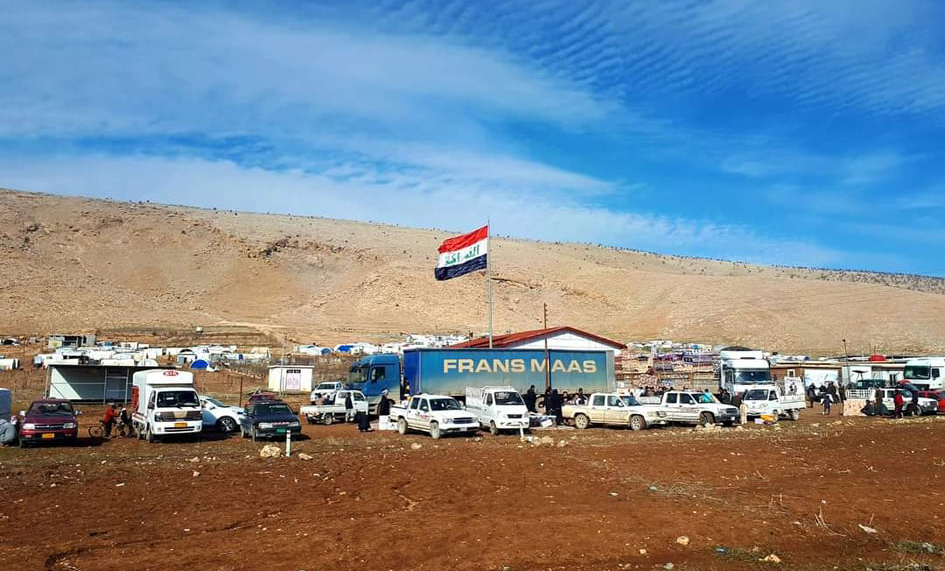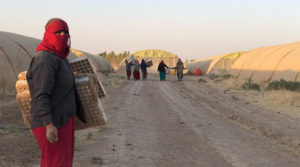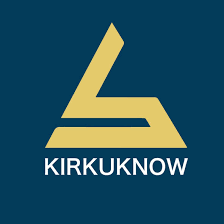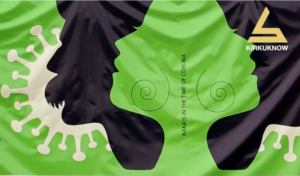
Shukur Badal is determined to get a Covid-19 jab as he has tasted the bitterness of infection with the Coronavirus, but what frustrates him is the distance of the vaccination centers from the place where he lives.
“I want to receive the first and second doses of the Corona vaccine inside the camp,” says Shukur, 45, who recovered from Covid infection three months ago.
Shukur and the rest of his family have not been inoculated yet, not because they reject it or have doubts and concerns, rather “because the nearest vaccination center is half an hour away from us by car, there is no vaccination center in Mount Shingal, neither inside the camp nor outside it.”
The nearest vaccination center from Mount Sinjar is located in the center of the Snuny sub-district, north of the mountain, in Shingal (Sinjar) district, more than 15 kilometers away.
“The financial conditions of 80% of the displaced are poor, so they cannot go to the Snuny and afford for the transportation costs (the cost of transporting a private vehicle from the IDP camp to the Snuny district is 50 thousand dinars $33), or go to another place to receive the vaccine,” says Badal.
Beside poor healthcare and the lack of a vaccination outlet, IDPs of Mount Shingal complain about poor living conditions amid absence of aid by the state, local and international NGOs.
Nearest vaccination center is in Snuny sub-district, 15 km driving from Mount Shingal.
After the attacks of the Islamic State of Iraq and Syria ISIS in 2014, most of the Ezidis of Shingal district, 120 km west of Mosul, took shelter in Mount Shingal, and 1,200 displaced families are still residing in the camps of Mount Shingal and Sardasht, according to statistics obtained by KirkukNow from the administrations of the camps.
When ISIS invaded Mosul and took large swathes of Iraq in 2014, thousands of Peshmerga (Kurdish fighter) and Iraqi military and security forces withdrew without resistance.
Taking advantage of this security gap, guerrillas of the Kurdistan Workers Party PKK, fighting Turkey since 1980s and holding territories in Iraq, moved into the Shingal and opened a safe corridor for people fleeing from ISIS by establishing a defense-line on Mount Shingal and from there to IDP camps in Duhok Northern province.
The IDPs on the mountains still prefer to stay there instead of return to war-torn Shingal which lacks basic public services and stability due to the conflict between armed groups.
Ali Shaabo, director of Sardasht camp, said, “The Iraqi Ministry of Migration and Displacement has stopped dealing with us for more than a year, so the aid has stopped and no one cares about us, and no vaccination center has been opened in the camp.”
In 2020, the Iraqi government suspended the aid it was sending to the IDPs of Mount Shingal such as food, fuel and household needs, given that in that year it had decided to close the camps for the displaced throughout Iraq, with the exception of the Kurdistan Region. So far, 51 camps for IDPs have been closed, except for Al-Jada’a camp, south of Mosul, center of Nineveh Province.
“Four months ago, one of the mobile vaccination teams from the Nineveh Health Directorate arrived at Mount Shingal but the mobile team stayed one day. I don’t know how many people had the opportunity in that short period to receive the vaccine dose, at the present time, those who wish to receive the vaccine are forced to go to the Snuny district.”
He added that despite the absence of a vaccination center in the camp, the percentage of vaccinated among the displaced is not low since “up to 50% were vaccinated”, given that some of them serve in the military and security corps and, according to the government’s decision, they are obligated to receive the vaccine.
According to the statistics of the two camps located in Mount Sinjar, infections with the Coronavirus have been recorded among 300 families, and seven people with Corona have died since the outbreak of the pandemic.
residents of these two camps refuse to receive the vaccine
Local health officials deny allegations of the camp residents, arguing they are ready to send mobile teams if the residents are willing to be vaccinated.
Jamal Hussein, director of Shingal health department, said they have sent mobile vaccination teams twice to Mount Shingal in coordination with one of the organizations, “but the residents of these two camps refuse to receive the vaccine, in both times only 150 people received the vaccine.”
Hussein pledged that if the camp administrations send the names of the displaced, they will send other mobile teams to the area.
In Sinjar district, there are 11 vaccination centers against Covid-19, which have so far given 67,000 vaccine doses to citizens, most of which were Pfizer-BioNTech over 48,000 doses, followed by Sinopharm and then AstraZeneca vaccine, according to the data obtained by KirkukNow from health authorities in the region.
This comes while the population of Sinjar district exceeds 334,000 people – according to the Iraqi Ministry of Planning statistics for 2019 – but some of the displaced have not yet returned to their homes due to the devastation caused by the ISIS war in their areas.
The Ezidis constitute 30% of the total 664,000 IDPs in the Kurdistan Region, most of whom are from Shingal, according to the statistics of the Kurdistan Regional Government KRG.
“We launched awareness campaigns and explained to the displaced people in Mount Shingal the importance of taking the vaccine, but they do not want to vaccinate themselves”, at a time when follow-ups by KirkukNow showed that many residents of both camps are ready to receive the vaccine if a vaccination center is opened.
Mount Shingal, a vast area in western Nineveh province close to the border between Iraq and Syria, and home to dozens of ancient villages and religious sites.
Director of Shingal General Hospital, Dilshad Ali Abdullah, told KirkukNow, “The displaced people residing in the two camps can visit our centers in the middle of Sinjar district and Snuny district. All they need to get a dose of the vaccine is to bring an Iraqi citizenship certificate.
Mount Shingal is located more than 30 kilometers north of the district center, and it takes about one hour to drive by car.
Local NGOs also shared interest in arranging a mobile health team to inoculate IDPs against Covid.
We are ready to provide assistance to any party that intends to deliver vaccines to the IDPs of Mount Shingal
Mikael Ibrahim Eido, Director of Dareen Community Development Organization in Shingal, said, “We have a group of volunteers and are ready to provide assistance to any party that intends to deliver vaccines to the IDPs of Mount Shingal through government or organizations’ mobile teams, but so far no one has approached us.”
In 2018, IDPs set up electricity power transmission with help of the donors, but they still suffer from scarcity of drinking water, especially during the summer, while in harsh winters they strive for kerosene to use for heating.
“Working in Sardasht camp and Mount Sinjar camp is very difficult, because some parties impede the delivery of aid to them (without referring to a specific party). Five months ago, with the help of another organization, we tried to deliver 500 aid baskets to the camp residents, but they prevented us from doing so, so we distributed them among IDPs in Dohuk,” Michael says,
Shingal district is located 120 km west of Mosul and administratively follows the Nineveh province, but the district is one of the disputed areas between the Kurdistan Regional Government KRG and the Federal Government. ISIS militants overran the war-torn district from August 3, 2014, up to November 13, 2015.
This article was originally published on KirkukNow. This article can be viewed in Arabic, Kurdish or Turkish via KirkukNow



